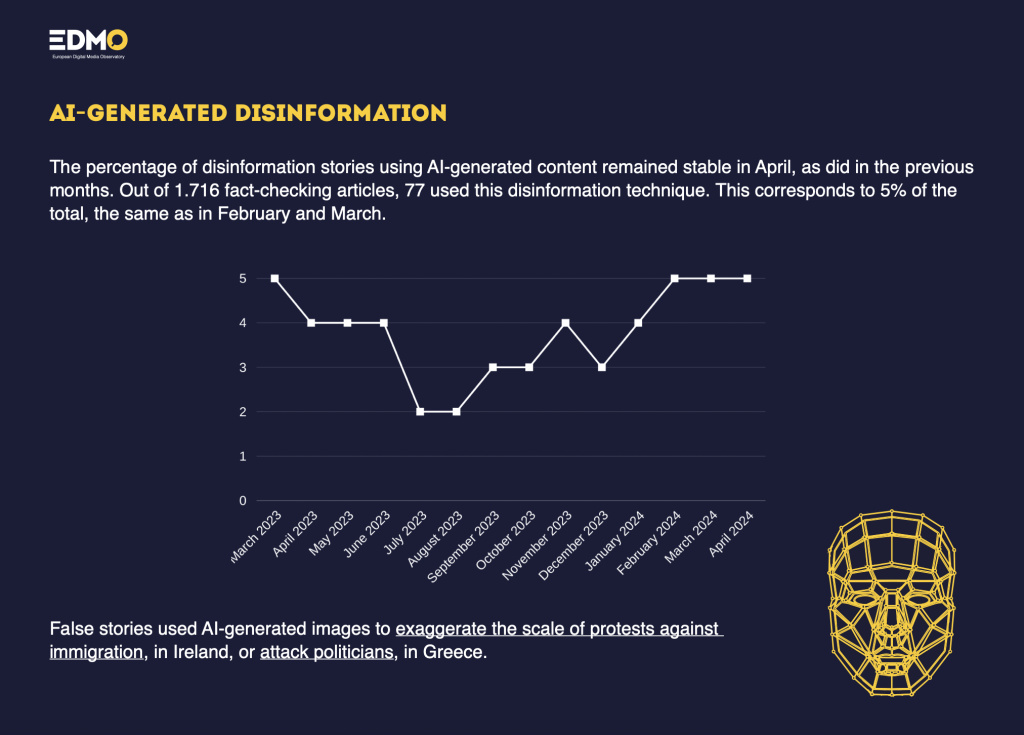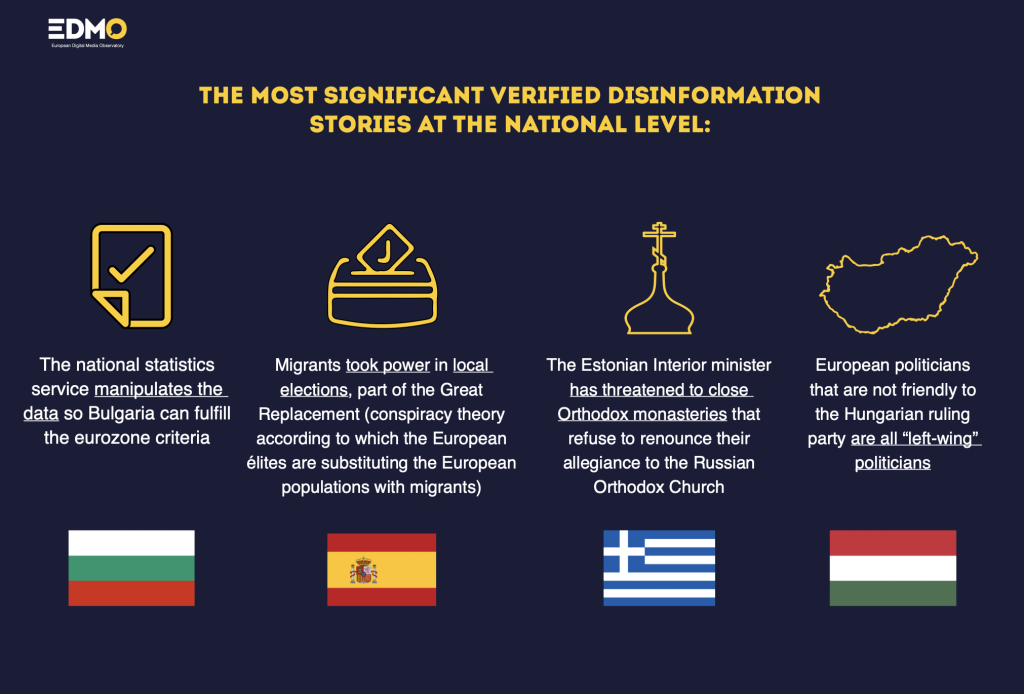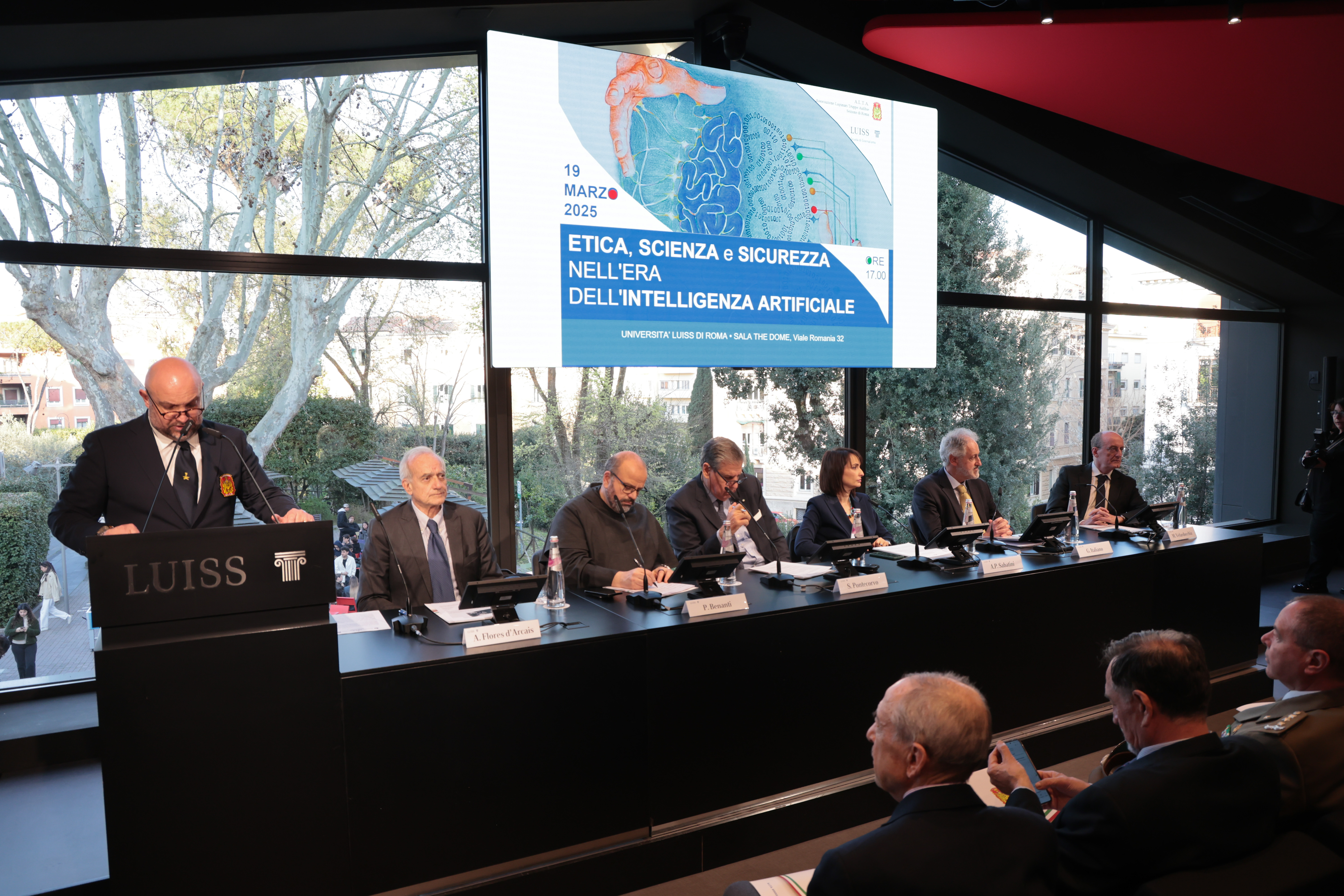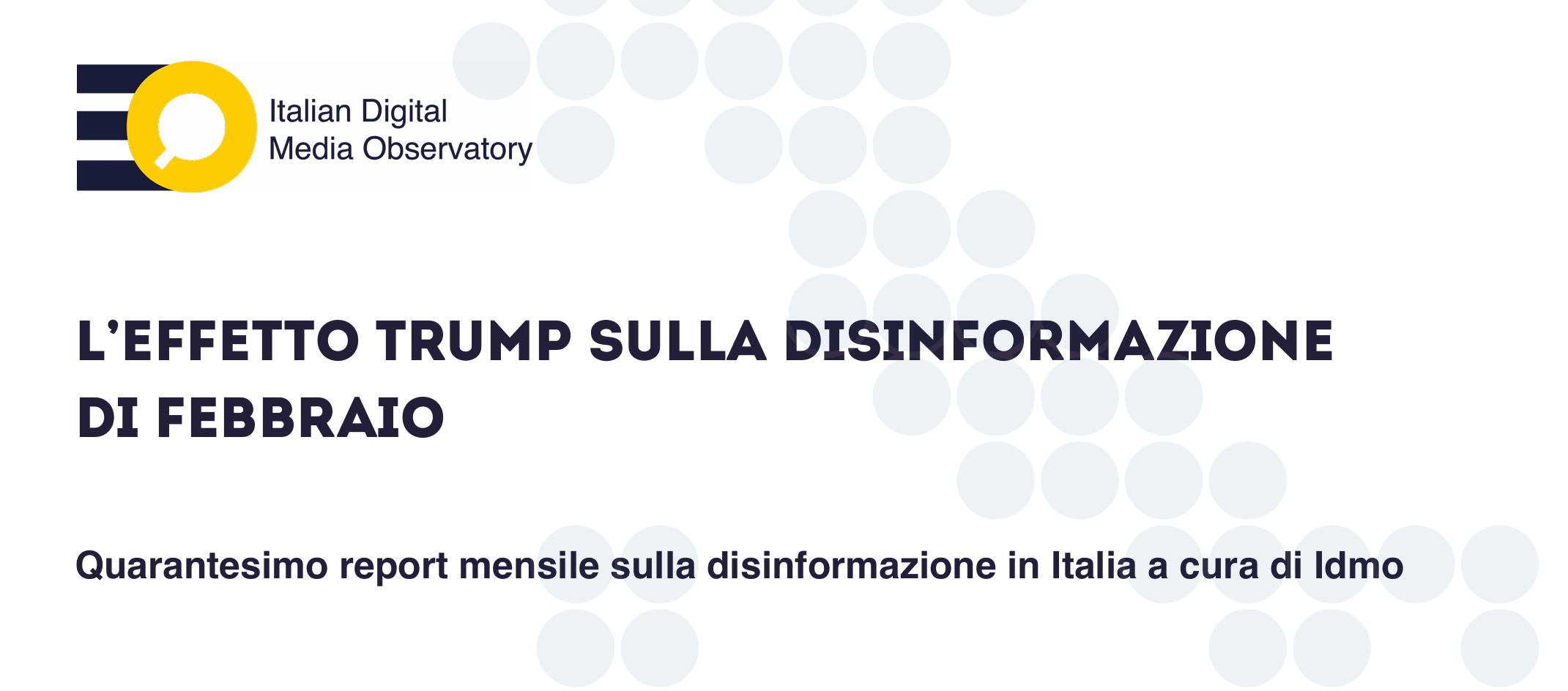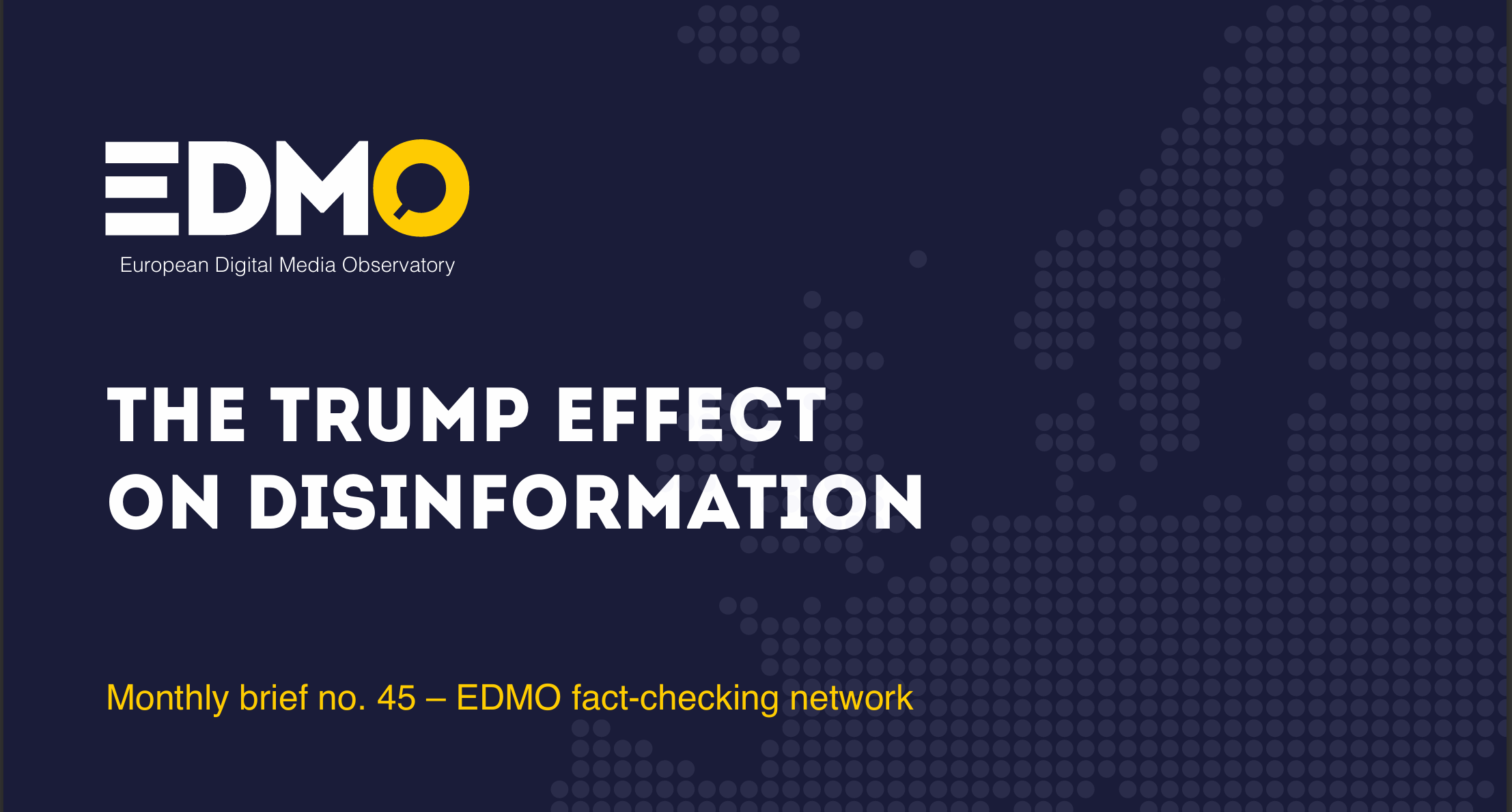DISINFORMATION ABOUT THE EU AND THE CLIMATE INCREASES TWO MONTHS BEFORE THE VOTE, FALSE STORIES ABOUT UKRAINE DECREASE SLIGHTLY
The 36 organizations* part of the EDMO fact-checking network that contributed to this brief published a total
of 1.716 fact-checking articles in April 2024. Out of these articles, 167 (10%) focused on Ukraine-related disinformation; 185 (11%) on climate change-related disinformation; 188 (11%) on disinformation related to the EU; 169 (10%) on the conflict between Israel and Hamas; 100 (6%) on COVID-19-related disinformation; 87 (5%) on disinformation related to immigration; and 37 (2%) on disinformation about LGBTQ+ and gender issues.
In April, EU-related disinformation reached its highest level since EDMO’s dedicated monitoring began, in May 2023. It amounted to 11% of the total detected disinformation. The share is the highest percentage among the topics constantly monitored by EDMO, together with the percentage related to climate change-related disinformation. False stories about Ukraine slightly diminished in numbers, but their impact remains high and their circulation massive. The value of disinformation about the war in the Middle East almost tripled compared to March, due to the exchange of attacks between Israel and Iran, and disinformation about the pandemic also rose, but more slightly. Disinformation about other topics constantly monitored remained stable.
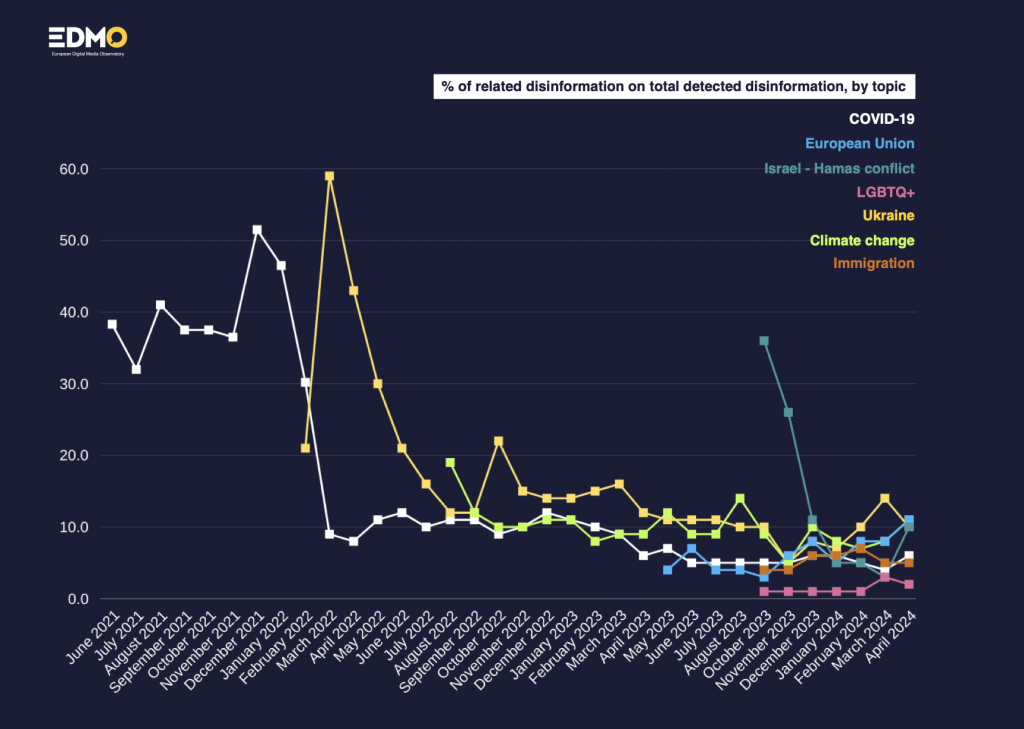
* Organizations that contributed to this brief: AFP, APA, BNT Provereno, Correctiv, Delfi, Demagog.cz, Demagog.pl, Demagog.sk, DPA, DW, Eesti Päevaleht, EFE Verifica, Ellinika Hoaxes, Eurocomunicare, Fact Check Cyprus, Factcheck Vlaanderen, FactReview, Faktabaari, Faktisk, FranceTV, Funky, Greece Fact Check, Källkritikbyrån, Knack, InfoVeritas, Lakmusz, Les Surligneurs, Maldita, Medizin transparent, Newtral, Oštro, PagellaPolitica/Facta, Polígrafo, Re:Baltica, The Journal Fact-Check, TjekDet
THE FALSE NARRATIVE OF THE EU’S DIRECT INVOLVEMENT IN THE WAR IN UKRAINE, AND OTHERS ABOUT ITS LAWS
Following the path of the false stories signaled in the previous Brief, the false narrative alleging the participation of the EU or its member countries in ground operations in Ukraine expanded in April, determining the increase of the related percentage.
For example, it was falsely claimed: that French troops are arriving in Ukraine, reservists and EU citizens are being called to be sent to the battlefield, that EU member states military officers and fighters are already being killed on the territory of the invaded nation, that EU member states are sending forbidden weapons to the Ukrainian army, or more generally that they are preparing for mobilization.
Other false stories about the EU targeted its policies and laws. Unfounded information described as unfair and authoritarian mainly policies aimed at countering climate change, especially those belonging to the Green Deal package, but other laws and procedures were targeted as well. For example, in Romania, it has been claimed that the EU wants to oblige the country to receive migrants (and provide them with housing and other facilities), while in France that 80% of the laws of the country are the consequence of EU legislation or even, as in Ireland, that the EU Commission asked to delay general elections to ensure the adoption of certain laws before a potential change in Government.
OTHER RELEVANT DISINFORMATION NARRATIVES
– Aside from the one about the escalation of the conflict, overlapping EU-related disinformation, false stories about Ukraine followed well-known false narratives previously reported in the EDMO Briefs. In particular, false stories in April focused on attacking Ukrainians on the moral level, for example saying that their government is trafficking children and selling them to pedophiles in the West, while another widespread false story, leveraging on sexism, alleged that a Ukrainian woman won the “World Sex Championship”, a sort of reality show. Other false claims targeted Ukrainian refugees, exaggerated the military difficulties of the invaded nation, or portrayed its leaders as enriching themselves thanks to the war. The false story about Ukrainian president Zelensky purchasing a mansion of the British Royal Family was one of the most widespread false content in the EU in April (see slide 8).
– In April EDMO published a cooperative investigation into a network of Russian copycat websites called “Pravda”, growing despite being uncovered and continuing to spread propaganda ahead of the elections. Various organizations within the EDMO fact-checking network followed up, publishing articles that delved deeper into the rhetoric and impact of their national Pravda website.
– The rise of climate change-related disinformation is mainly due to the significant recirculation of usual denialism – that denies the climate crisis or the effects of human activities on it – and the New denial false stories, depicting solutions to global warming as ineffective, stupid or dangerous. To be signaled is also the massive circulation of conspiracies alleging the recent violent flooding in Dubai was caused by the “HAARP” project, cloud seeding, geoengineering, or chemtrails (see slide 8).
– Disinformation about the conflict in the Middle East mainly focused on the attacks between Israel and Iran, using old and unrelated content to exaggerate the crisis and fearmongering the escalation of the conflict.
– No relevant development has been tracked about false narratives about the pandemic, which in April were mainly about alleged authoritarianism of anti-Covid-19 measures and alleged dangerous effects of vaccines. For example, the false claim that the German government admitted there was “no pandemic”.
